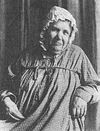

| Previous day | Next day |
| Old Style
August 26
|
Thursday |
New Style
September 8
|
| 13th Week after Pentecost. Tone 3. | No fast.
|
![]() Commemoration of the Meeting of the Vladimir Icon of the Most Holy Theotokos (1395).
Commemoration of the Meeting of the Vladimir Icon of the Most Holy Theotokos (1395). ![]() Martyrs Adrian and Natalia and 23 companions, of Nicomedia (305-311). St. Maria of Diveyevo, fool-for-Christ (1931).
Martyrs Adrian and Natalia and 23 companions, of Nicomedia (305-311). St. Maria of Diveyevo, fool-for-Christ (1931).
St. Adrian, founder of Ondrusov Monastery (Karelia) (1549). St. Adrian of Uglich (after 1504). Blessed Cyprian of Storozhev, former outlaw (16th c.). Finding of the relics of St. Bassian, schemamonk of Alatyr Monastery (1748). New Hieromartyr Nectarius (Trezvinsky), bishop of Yaransk (1937).
New Hiero-confessor Roman Medved, archpriest, of Moscow (1937).
The miraculous renewal of the Vladimir Icon of the Theotokos in Harbin (Manchuria) (1925).
St. Maximus, archbishop of Jerusalem (347). St. Tithoes of the Thebaid, disciple of St. Pachomius the Great (4th c.). St. Ibestion the Confessor, Egyptian ascetic (ca. 450). St. Zer-Jacob, missionary of Ethiopia. Monk Ioasaph, prince of India (4th c.)
Thoughts for Each Day of the Year
According to the Daily Church Readings from the Word of God
By St. Theophan the Recluse

Thursday. [II Cor. 10:7-18; Mark 3:28-35]
He that shall blaspheme against the Holy Ghost hath never forgiveness. Does it take long to fall into this terrible sin? Not long at all, for behold the sins of this nature: “great or excessive hope in God’s grace; despair or lack of hope in God’s compassion; contradicting manifest and confirmed truth, and rejection of the Orthodox Christian faith. Some add to this jealousy over spiritual gifts which a close one receives from God; obstinacy in sin and chronic wickedness; carelessness about repentance before departure from this life” (Orthodox Confession part 3, question 38). See how many paths! Begin to walk any of these and it will be difficult to return; it will carry you to a devouring abyss. Opposition to the truth begins with small doubts, arising through evil words or writing. If you leave them without paying attention to them or treating them, they will lead to unbelief and obstinacy in it. People also reach despair unnoticeably: “I will repent,” they say, and then sin. Thus it goes on several times; then, seeing that repentance does not come, they say to themselves, “So let it be, you cannot control yourself,” and then give themselves over to sin in its full power. A chasm of sins gathers; and at the same time they tolerate a chasm of opposition to the obvious calling of God’s grace. When in such a condition a person comes to the thought of improving himself, the multitude of his sins restrains him, while his opposition to grace takes away his boldness to approach the Lord. He then decides, “My guilt is too great to have it be remitted.” This is despair! Beware of the rudiments of unbelief and love of sin, and you will not fall into this chasm.




